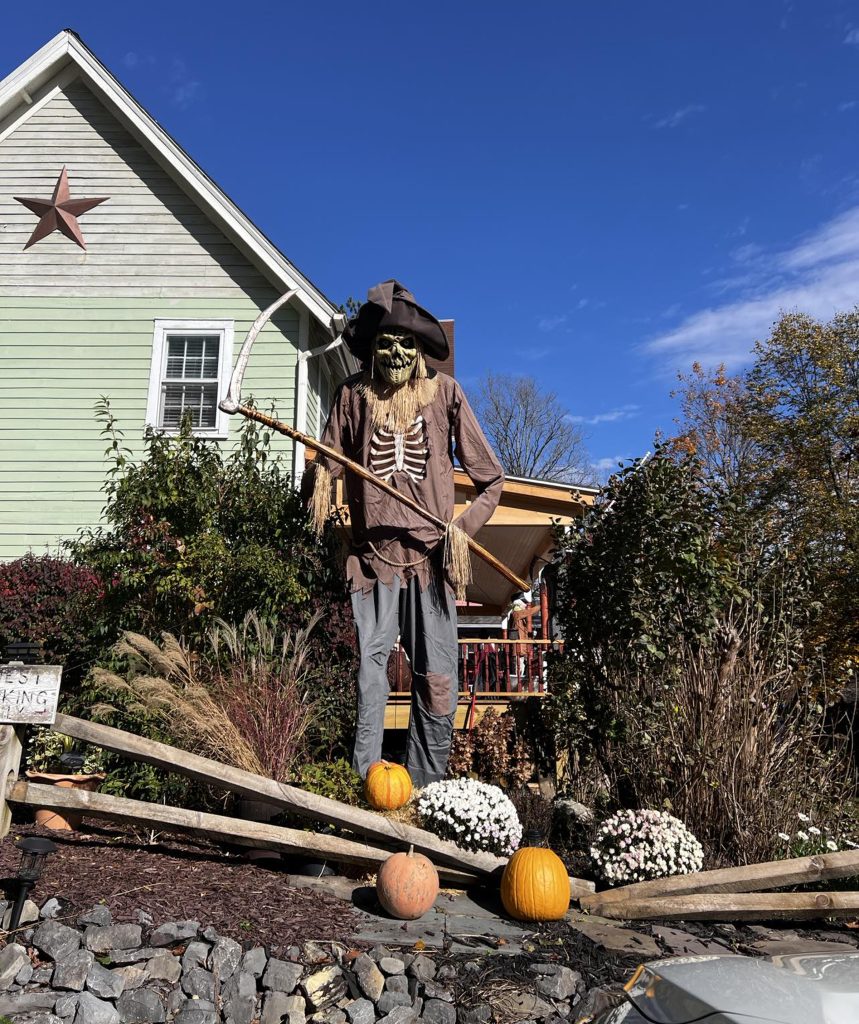
Citizen Science by Jamie Zvirzdin
Superstitious By Design: How We Negotiate Chaos, Uncertainty
When I was 7, I was gifted a grotesquely vivid rabbit’s foot. Dyed two shades of purple, clinging to a gold-bead keychain, it occupied a sacred corner of my childhood drawer—a reliquary of sorts where keepsakes were stashed and semi-forgotten. At that age, causality was an ever-evolving puzzle. Did I truly believe that this amputated appendage wielded the power to tilt fortune in my favor? I don’t think so. But there was a frayed boundary between doubt and credulity, a membrane thin enough to let superstitions seep in. The foot stayed, as did the illusion of control it offered.
When we’re young, the world unfolds in found talismans and nursery ditties. Singsong superstitions are verses in the narratives we construct about our lives. I was no exception. Sidewalks transformed into mythical landscapes, each crack a fault line through which my mother’s well-being might crumble. “Step on a crack and you’ll break your mother’s back,” echoed in my head as I hopped from slab to slab, trying to balance my step cadence with the frequency of sidewalk cracks. I didn’t want to test the waters of that particular curse.
And yet, for all the cracks diligently avoided and pennies religiously picked up, there were also superstitions I boldly flouted. Take the number 13—a numerical pariah shunned by elevators and airlines alike. When my second-grade birthday rolled around on a Friday the 13th, I braced for a deluge of misfortune. Instead, the day unfurled with the uneventful joy of any childhood birthday. Well, almost uneventful—I did find my missing shoelace, and I clearly recall holding it up and feeling lucky. Not win-the-lottery lucky, just glad-I-found-my-shoelace lucky (how I lost a whole shoelace in the first place has been forgotten).
This underwhelming anticlimax was an early lesson in healthy skepticism. If an ostensibly accursed day could transpire without event, what else among our folklore might crumble under scrutiny? Astrological predictions became my prime target for psychological unpacking. As I entered adulthood, the more I learned about astronomy, the more the notion that Mercury’s retrograde orbit could steer my destiny seemed as flimsy as it was absurd. Carl Sagan’s words became my mantra: The doctor who assisted at my birth wielded more cosmic influence over my life than any celestial entity ever could. My fate became my own as I came into my own.
But why do we, collectively, hum these ditties of irrationality? Why do we invest emotionally in their credos? Superstitions—reduced to rhyming couplets or simple gestures, salt over our shoulders—are cultural heirlooms, mnemonics passed from generation to generation. They offer us a microcosm of control, a token economy in which luck can be both stored and spent. As I reconciled . . . and continue to reconcile . . . my personal litany of innocent superstitions with a more reasoned worldview, I realize the allure of superstitions isn’t in the promise of a luckier outcome but an active attempt to control the uncertainty of existence.
I don’t even know what happened to the gross purple rabbit’s foot, but the old ditties still echo in the recesses of memory, like fragments of a once-sacred hymn. Our need to feel control in an uncontrollable world has roots in our need to survive: If you bolted at ghosts, you might escape the tiger hiding in the grass. Some superstitions help calm this survival anxiety, but others augment fear and tension.
So this Halloween, don’t worry about the black cat that crosses your path, but do worry about walking under ladders and breaking mirrors, not because it’s unlucky but because actions still have consequences, and some amount of survival anxiety is needful and warranted. But see if you can supplant anxious habits with evidence-based practices: What if, when we feel anxious and out of control, we did 10 pushups instead of reaching for an alcoholic drink or mood-mellowing drug? What if we sat down with a planner and made some goals instead of checking out our latest horoscope online? What if we recognized that all numbers, statistically speaking, are unlucky lottery numbers, and we saved up that lottery money for something better? What if we accepted that there are some things we can control and some things we can’t? In doing so, we may find we can affect the circumstances of our lives more positively than we previously imagined.
As we creep through the cornfield maze of our existence, we all cling to whatever semblance of order we can find. Sometimes that order is a purple rabbit’s foot, sometimes it’s wishing on a star, sometimes it’s humming a song to ward off evil spirits. But always, it’s a testament to our human impulse to navigate, negotiate, and, when possible, defy the chaos and uncertainty in our world.
Jamie Zvirzdin researches cosmic rays with the Telescope Array Project, teaches science writing at Johns Hopkins University and is the author of “Subatomic Writing.”

